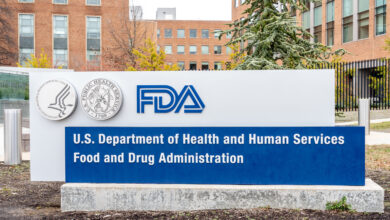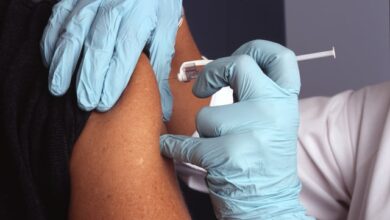Most will agree that the coronavirus pandemic has impacted just about every aspect of human life in America and the world over. In saying that, we should also recognize that there are several strains of this virus, including those that are synonymous with the common cold and flu. The one that has upended life as we know it in America and abroad is a relatively new one known as SARS-CoV-2 or COVID-19. According to the
(CDC), this new virus strain is spread mainly through respiratory droplets, which go into the air when infected individuals are laughing, coughing, sneezing, or even talking.
For this reason, the CDC, the World Health Organization, and many epidemiologists routinely advocate wearing face masks. And this is not too surprising given that face masks can prevent respiratory droplets from entering the airway of non-infected individuals, which, in turn, slows the spread of the virus. This sentiment is one that is shared by Robert R. Redfield, the 18th director of the Centers for Disease Control and Prevention and administrator of the Agency for Toxic Substances and Disease Registry. In an article published by CNBC, a go-to for business news and real-time financial market coverage, Dr. Redfield says that a face mask might provide more protection against the coronavirus than a vaccine.
When Will a COVID-19 Vaccine Be Available?
The same article published by CNBC notes that a vaccine for COVID-19, a virus that can lead to pneumonia, respiratory failure, heart problems, septic shock, liver problems, and even death, is expected by the end of 2020. And while this is good news as America and the rest of the world continues to reel under the COVID-19 pandemic, there are a few caveats worth noting. At best, a vaccine for the virus, once available, may only be about 70 percent effective, which is explains why Dr. Redfield asserts that wearing a face mask or similar face coverings might provide more protection against the coronavirus than a vaccine. Further, while a vaccine is expected by years end, there is no guarantee that it will happen.
As of the writing of this article, a potential COVID vaccine known as AZD1222, developed by the University of Oxford in England and AstraZeneca, which has research and development centers in the U.S., UK, Poland, and Sweden, is currently undergoing a phase-3 clinical trial. Whether or not this vaccine becomes available by the end of 2020 will hinge on the outcome of the clinical trial. That being said, only about 33 percent of all vaccines aimed at combating infectious diseases ever make it through clinical trials and go on to receive regulatory approval, according to a study published in the scientific journal of Biostatistics.
How the New Coronavirus Strain Has Impacted America and the World
Most healthcare professionals, educators, and economists agree that SARS-CoV-2, otherwise known as the new coronavirus strain, has impacted every facet of life imaginable. For example, the virus has forced countless businesses to either scale back their operations and layoff workers or shutter completely. The airline industry is no exception in this regard. To put this into context, in the United States, the number of passengers being screened by Transportation Security Administration (TSA) personnel before boarding a flight in 2020 declined by more than 95 percent compared to 2019, which points to an un-mistakeable slow down in air travel. Of course, this has a lot to do with the fact that many countries closed their borders to U.S. travelers after they went into lockdown amid the virus.
These lockdowns not only crippled air travel but also led to an economic downturn in the U.S. and other countries. For reference, an article published in the Guardian revealed that the U.S. GDP declined by an annual rate of 32.9 percent between April and June of this year, which, coincidentally, is about the time when COVID cases started surging in the country. As far as the global economy is concerned, the SARS-CoV-2 pandemic is expected to result in a 4.9 percent contraction of the global gross domestic product (GDP). Indeed, this devastating virus has contributed to not only a health crisis but also a financial one. On a side note, the entire global hospitality industry has also been hard hit by what has been officially declared a global coronavirus pandemic by the World Health Organization (WHO).
A Closer Look at Coronavirus Statistics in America and Around the World
To date, the new strain of coronavirus, otherwise known as SARS-CoV-2 or COVID-19, has infected 35,163,726 people around the world, according to worldometers.info. It has also claimed the lives of 1,038,325 people worldwide. While these statistics do sound grim, there is some good news worth noting insofar as 26,154,128 people have escaped death and recovered from the life-threatening virus. In total, COVID-19 is affecting some 214 countries and territories globally and two international conveyances, according to the same data published by worldometers.info. As far as U.S. statistics are concerned, the total number of coronavirus cases in the United States has surpassed 7.6 million. Of those infected with the virus, over 200,000 have already died. And an estimated 4.8 million have recovered after contracting the virus.
It should be noted that the probability of overcoming COVID-19 is much higher if individuals seek prompt medical treatment as soon as they start experiencing any of the symptoms associated with the virus, some of which include the following:
- Difficulty breathing
- Discoloration of the face or lips
- Chest pain
- Extreme confusion
- Muscle or body aches
- Fever
- Chills
Final Thoughts on the Coronavirus in the U.S. and Abroad
As the world collectively awaits a vaccine, we must all follow the CDC guidelines to help stem the spread of COVID-19, which includes frequent hand washing and wearing face coverings. It is also equally important to continue practicing social distancing even if doing so interferes with our social connection with friends and family members. After all, if everyone does their part, the world and life as we know it will get back to normal that much faster.






